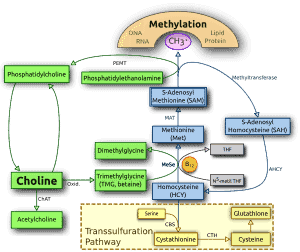An experimental study in rats has shown that consuming choline, a vitamin B group nutrient found in foodstuffs like eggs and chicken or beef liver, soy and wheat germ, helps improve long-term memory and attention-holding capacity.
The study, conducted by scientists at the University of Granada (Spain) Simón Bolívar University, (Venezuela) and the University of York (United Kingdom), has revealed that choline is directly involved in attention and memory processes and helps modulate them.
Researchers studied the effects of dietary supplements of choline in rats in two experiments aimed at analysing the influence of vitamin B intake on memory and attention processes during gestation and in adult specimens.
In the first experiment, scientists administered choline to rats during the third term of gestation in order to determine the effect of prenatal choline on the memory processes of their offspring. Three groups of pregnant rats were fed choline-rich, standard or choline-deficient diets. When their offspring had reached adult age, a sample of 30 was selected: 10 were female offspring of dams fed a choline-supplement, 10 had followed a choline-deficient diet and the other 10, a standard diet, acting as a control group.
Long-term memory
This sample of adult offspring underwent an experiment to measure their memory retention: 24 hours after being shown an object all the offspring (whether in the choline-supplement group or not) remembered it and it was familiar to them However, after 48 hours, the rats of dams fed a prenatal choline-rich diet recognized the object better than those in the standard diet group, while the choline-deficient group could not recognize it. Thus, the scientists concluded that prenatal choline intake improves long-term memory in the resulting offspring once they reach adulthood.
In the second experiment, the researchers measured changes in attention that occurred in adult rats fed a choline supplement for 12 weeks, versus those with no choline intake. They found that the rats which had ingested choline maintained better attention that the others when presented with a familiar stimulus. The control group, fed a standard diet, showed the normal learning delay when this familiar stimulus acquired a new meaning. However, the choline-rich intake rats showed a fall in attention to the familiar stimulus, rapidly learning its new meaning.
The study has been undertaken by University of Granada Department of Experimental Psychology researchers Isabel De Brugada-Sauras and Hayarelis Moreno-Gudiño (also on the research staff of Simón Bolívar University together with Diamela Carias); Milagros Gallo-Torre, researcher in the University of Granada Department of Psychobiology and Director of the “Federico Olóriz” University Research Institute for Neuroscience; and Geoffrey Hall, of the Department of Psychology of the University of York. Their study has recently given rise to publications in Nutritional Neuroscience and Behavioural Brain Research.
An illustrative video, produced by UGRdivulga and narrated in Spanish, is available at: http://youtu.be/un1u_ZoTYv8
If our reporting has informed or inspired you, please consider making a donation. Every contribution, no matter the size, empowers us to continue delivering accurate, engaging, and trustworthy science and medical news. Independent journalism requires time, effort, and resources—your support ensures we can keep uncovering the stories that matter most to you.
Join us in making knowledge accessible and impactful. Thank you for standing with us!

